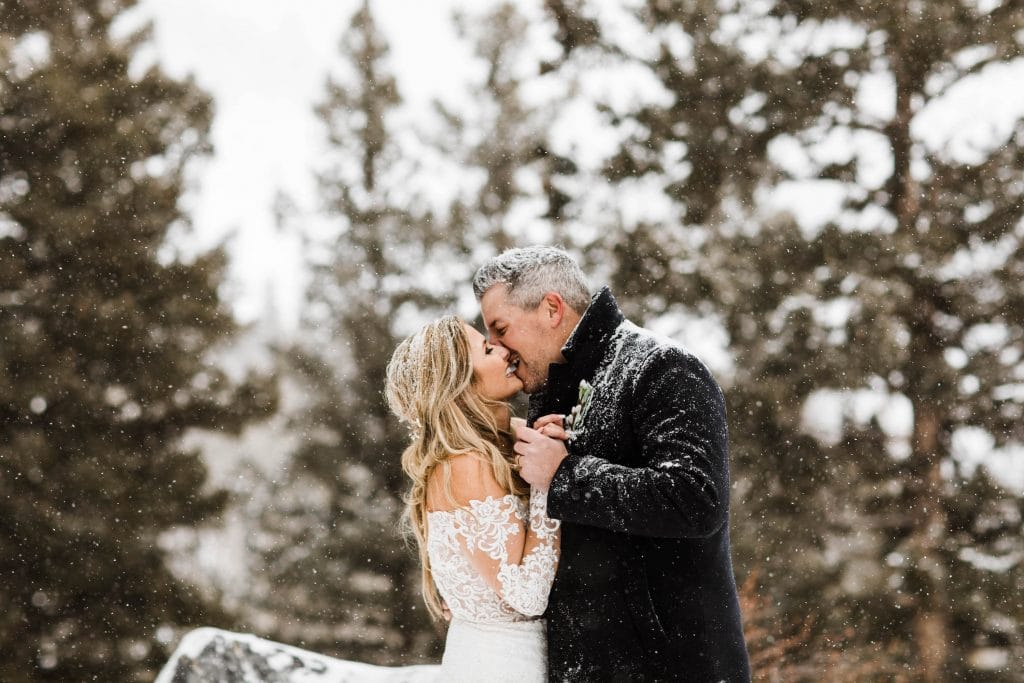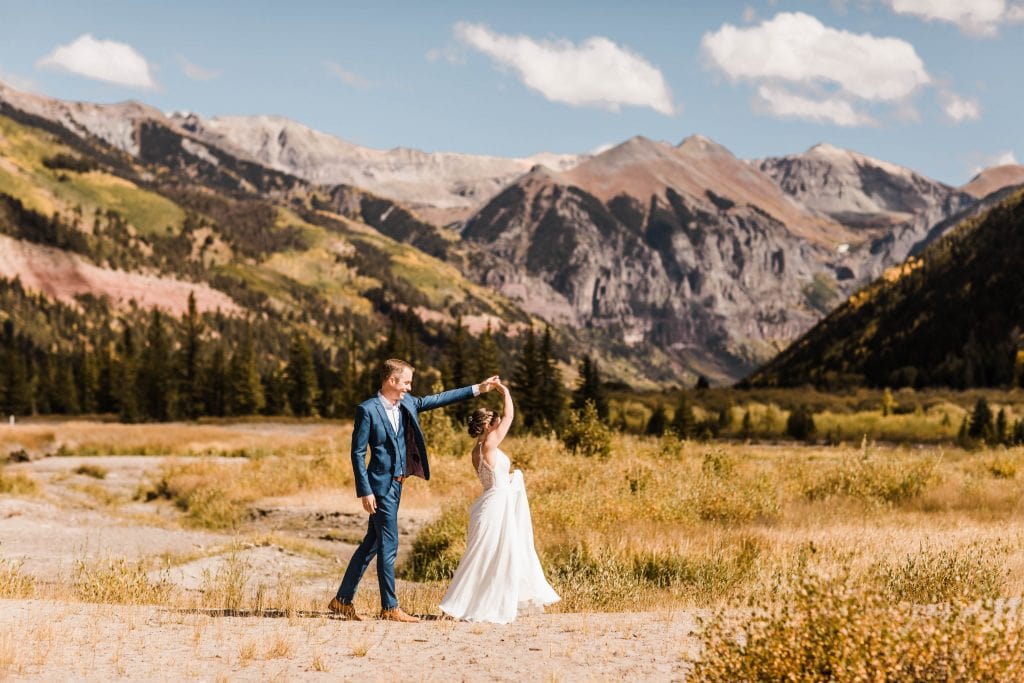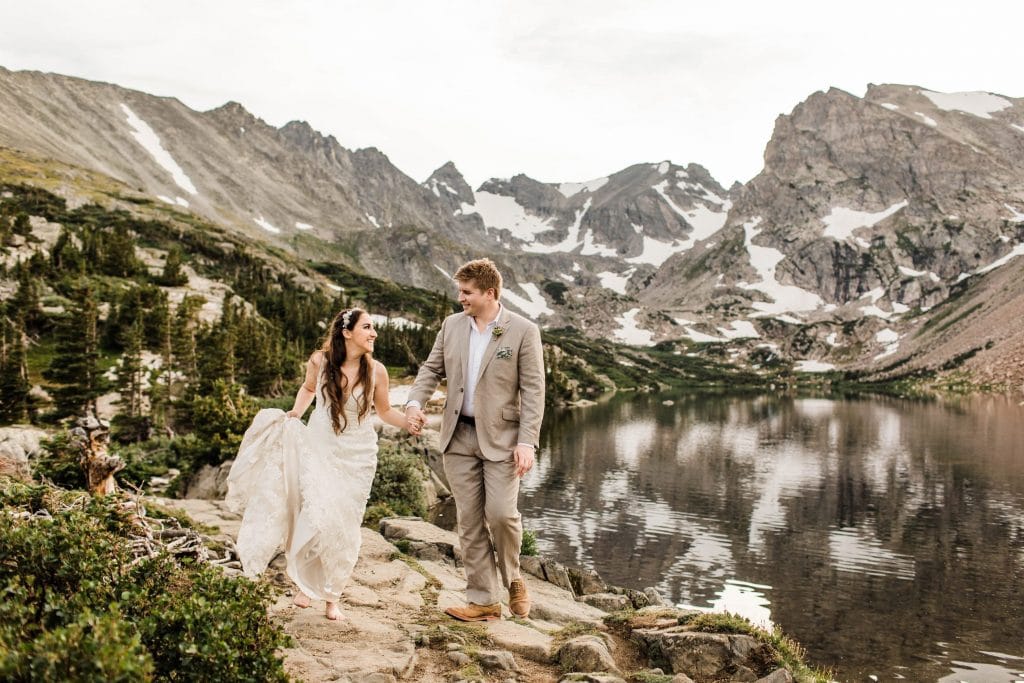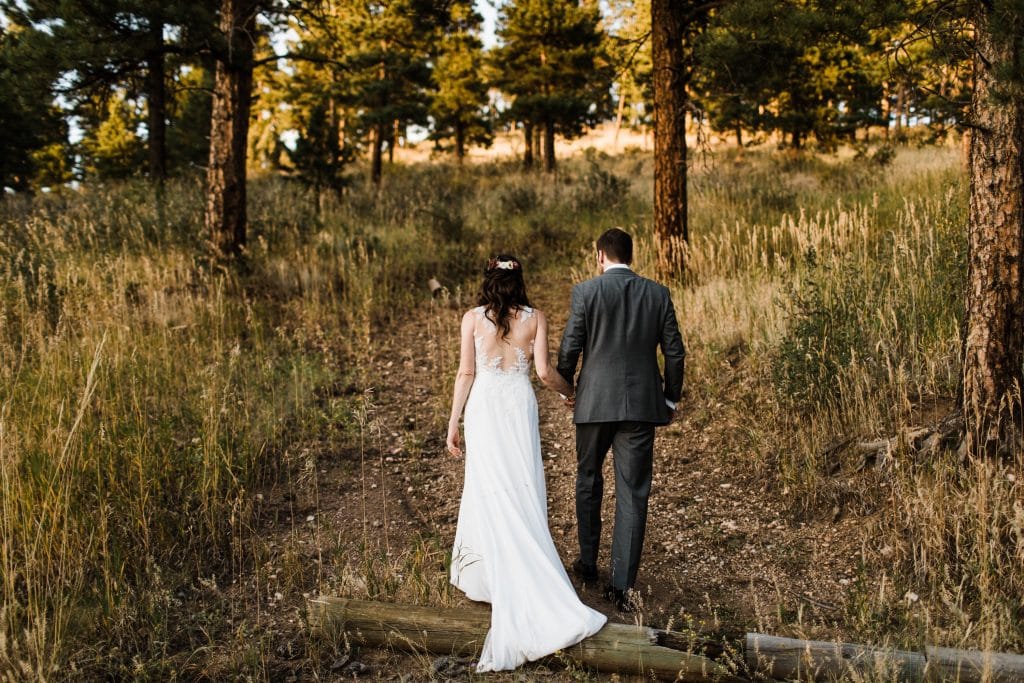Elopement Definition - Defining Modern Elopements
Elope Definition: What Does it Mean to Elope?

The Modern Day Elopement Definition: Explaining What Elopements Look Like These Days And Clearing Up Some Common Elopement Misconceptions
Elopement Meaning: The Truth About Elopements And What It Truly Means To Elope
I’m willing to guess that at some point in your life you’ve been told stories about what elopements are. Maybe the elopement definition you’ve heard is that elopements are shameful, secretive weddings that couples have when their friends or family disapprove of their relationship. Or maybe you’ve been told that the only people who elope are those that can’t afford to get married the traditional way. Or perhaps you’ve heard the definition that elopements aren’t real weddings. Well guess what?
I’m here to tell you that every single one of those archaic elopement definitions is outdated. Perhaps that old elopement definition was valid in the days of your grandparents, but times have changed a lot since then. And luckily the modern-day elopement definition has changed quite a bit. Here’s how:
The New Elopement Definition:
How do we even define elopements today?
While a lot of people define elopements as small weddings that take place with just two people, an officiant, and the necessary witnesses present, elopements these days come in way more flavors.
I’ve photographed elopements with 10 people total present, because the eloping couple wanted their friends and family there. I’ve also photographed elopements where it was solely the couple (something you can do in Colorado, where you can self solemnize or self marry by signing as your own officiant).
What is an Elopement?
Elope Definition
An elopement is a non-traditional, intimate, and intentional way to get married, where the focus is on the eloping couple as opposed to the guest experience.
What are Elopements All About?
Elopements are about intentionality
Elopements are highly focused and defined by celebrating the eloping couple, whereas traditional weddings are primarily focused on the guests at the wedding (whether it be the inclusion of a cocktail hour or extended time spent mingling with guests instead of spending time with your partner).
Defining Guest List Size
Are elopements defined by guest size?
Elopements can certainly have guests.I’ve photographed elopements with 10 people total present, because the eloping couple wanted their friends and family there. I’ve also photographed elopements where it was solely the couple (something you can do in Colorado, where you can self solemnize or self marry by signing as your own officiant).
Defining Elopement Budgets
Are they different from big wedding budgets?
A key difference between the definition of an elopement versus a traditional wedding is how your wedding budget is allocated. Your elopement budget can be focused on you and your partner, whereas a wedding budget is typically spread out amongst tons of vendors whose primary goal is to keep your guests happy and entertained.
Traditional Weddings Mean Dedicating Almost All of Your Budget to the Guest Experience
Wedding Definition, From a Budget Standpoint
According to the Knot’s annual study of the wedding industry, the average couple these days spends $258 per person on the guest experience for their weddings. With the average couple having 136 guests at their wedding, that’s $35,088.
After crunching the numbers, I think it’s safe to say that the key difference between the definition of an elopement and the definition of a traditional wedding is centered around this idea of your day being about you and your partner, versus your guests. When you have a traditional wedding, you’re typically dedicating the majority of your wedding budget to the guest experience.
Elopements Are Defined By Focusing Your Budget on Your Experience, As the Couple
Elopement Definition, From a Budget Standpoint
I’m guessing there’s one question that’s been nagging you about this elopement definition of ours: aren’t elopements just secretive, poorly planned, sometimes shameful events where a couple runs away to a place like Las Vegas to tie the knot? What is an elopement, really?
Our culture has done such a crappy job of showing couples how insanely intentional and epic modern day elopements can be. Luckily, we’ve witnessed this elopement definition change a lot these days. And people are starting to view elopements as a way for couples to take back their wedding day.
In fact, I’d argue that elopements are some of the most genuine, love-focused, fun, and intentional ways to get married. And I’m excited to explain why. I’ll also dive into what an elopement isn’t and debunk some of the common misconceptions a lot of couples have when considering an elopement.
The Wedding Industry Doesn't Have Your Best Interest at Heart
Because Their Goal is to Get You to Spend Money on Things You Don't Need
The reason why the wedding industry is dead set on defining elopements in a negative light is because the goal is to get you, the engaged couple, to spend the most amount of money on the most amount of things.
The wedding industry knows that if they hype up this idea of the guest experience being the most important part of the wedding day, engaged couples will end up spending a huge chunk of their budget on things they don’t even care about: like fancy silverware, trendy table settings, and wedding favors that your guests will probably throw away when they get home.
That’s exactly why elopements have this misguided “bad reputation.” Because elopements are defined by your experience, as the couple. And the reality is, spending money on two people versus 200 isn’t as profitable for the wedding industry.
Let's Talk About What Elopements Are Not
Debunking Common Misconceptions About The Meaning and Definition of Eloping

Elopement Definition Misconception 1:
An Elopement is Defined as Some Last-Minute, Quickly Pulled Together Wedding
This old-timey elopement definition is like nails on a chalkboard to me. The truth? Most couples I work with have spent just as much time planning their elopements as others do when planning their traditional weddings. When you look at the traditional elopement definition, you’re likely to run across some explanation of how elopements are rushed and poorly planned. But that’s just not the case.
So much intention and thought goes into planning an elopement. Because of the smaller scale of an elopement, the attention to detail can be even more important and noticeable than with a larger wedding.
Elopement Definition Misconception 2:
An Elopement is Defined as a Secretive Wedding
Many couples love getting their close friends or families involved in the elopement planning process, which involves telling those people. And many couples opt to bring friends or family along on the elopement day.
Yes, you heard that right: elopements can have guests. For example, I define elopements as intimate weddings with less than 10 people total.
Elopement Definition Misconception 3:
Elopements are Defined By "Running Away".
“Running away” implies that elopements are shameful, when they’re not. When you elope, you’re actually running to the type of wedding and experience that resonates most with you. The only thing you’re running away from is the wedding industry’s template of what a wedding “should” look like.
Elopement Definition Misconception 4:
Eloping Makes Your Wedding Less Legitimate
This is a big one I used to hear a lot when people defined elopements. Eloping doesn’t signal that your relationship is less legitimate. What does it mean to elope? It simply means you want to be intentional about the way you get married. And it means that you’re not taking everything the wedding industry says to you as truth.
And while we’re on the topic, an elopement is also not a shameful alternative for couples who can’t have a traditional wedding. Frankly that’s just a bold-faced lie the wedding industry wants you to believe so they can get you to spend the equivalent of a home down-payment on this one-day event.
Now That We've Busted Elopement Myths
Let's See Why This New Elopement Definition Might Mean An Elopement is a Good Option for You

With This New Elopement Definition, You Get To Fully Customize Your Elopement Day
You Get To Pick And Choose Which Traditions (If Any!) Matter To You
- Elopements allow you to put traditions aside if they don’t speak to you. They encourage couples to exist outside the box the wedding industry is trying to put you in.
- When you elope there’s no obligation to mingle with people you’ve met only a handful of times in your entire life. Instead, elopements allow you to spend all that time with the person you’re marrying. And that’s the point of getting married anyways, isn’t it?! That’s one of the awesome things about the definition of elopements: you define how you get to spend your time.
When You Elope, You Don't Have To Write Your Vows For An Audience
- With elopements, you don’t have to censor yourselves when you write your vows. The intimacy and definition of elopements allows couples to share their words honestly, without worrying about what an entire room full of people might think or say.
- You get the privacy and benefit of minimal witnesses to what you’re saying. I’ve seen so many couples write two sets of vows on their wedding day when they choose the traditional wedding route: one that they read in front of everyone and one that they keep to themselves to share later. Frankly it’s sad that that even has to be the case. This is your wedding day. You should be able to be open and honest, and elopements allow you to do that.
With Elopements, You Don't Have to Spend the Equivalent of a Home Down-Payment On Your Wedding
- When you elope, by definition, you get to put the focus on experiences rather than things.
- You save money on the guest experience (remember that $258/guest I mentioned earlier?), which you can then put into crafting an epic elopement adventure for you and your partner. Or investing in that dream dress or elopement photographer you’ve had your eye on. Imagine how much farther your wedding day budget could go if you decided to elope.
- You can choose a few select parts of the day to invest most of your budget and splurge a bit, and you’ll still end up spending way less than you would with a traditional wedding.
- And best yet, all of this money you’d spend on your elopement? It’s all dedicated to you and your partner having the best day possible, rather than blowing your budget on an open bar, table settings, and floral arrangements that’ll likely get thrown out at the end of the night.
With This New, Modern Elopement Definition, You Get To Choose Your Own Elopement Adventure
- You can go with the flow and maintain a sense of spontaneity on your elopement day. There isn’t nearly as much rigidity with elopements as there is with bigger, traditional weddings. Sure you’re following a general plan and elopement timeline, but it’s by no means as strict as a traditional wedding.
- You can elope in pretty much any location you can imagine: national parks, the beach, on a mountain pass, in a backyard…the list could go on forever.
- You have the chance to elope in a place that has meaning to you: something that no traditional wedding venue could give you.
- Elopements are defined by their freedom. The flow of the day is entirely up to you. You get to choose what you want to do. Want to go rock climbing on your elopement day? You can do that. Want to camp out on your favorite trail the night before you tie the knot? You can do that too. Want to take a cooking class together the morning of your elopement? Go for it.
Elopements Allow You to Be Selective About Your Guest List
- When you elope, you don’t have to bring along every person you’ve ever known. Elopements, by their nature, and intended to be intimate.
- Some couples choose to elope just the two of them, and others choose to bring along friends or family. It’s really up to you to decide.
- No one is entitled to be a guest on your elopement day. You call the shots.
Elopement Planning Doesn't Have To Feel Like A Full-Time Job
- For so many couples, wedding planning can feel like a full-time job in and of itself. But with elopements, there aren’t nearly as many moving parts.
- Eloping isn’t nearly as stressful, especially if you have a good elopement photographer who can help you throughout the process. Many elopement photographers will be able to find you the perfect elopement location, recommend awesome vendors, and create your day-of elopement timeline for you.
Elopements Allow You To Soak In Every Moment Of Your Wedding Day, Without Feeling Rushed
- With elopements, your wedding day doesn’t have to feel like a rushed blur you won’t remember. You can savor it and take it slow, which is virtually impossible with big weddings.
- Because you’re choosing every part of your elopement day with intention, you call the shots on the pace of the day.
Elopement Definition FAQ
The Biggest Questions Couples Ask About Elopements

It’s interesting to me that so many people say this to couples who are considering eloping. The fact of the matter is a wedding day is about the couple. It’s about celebrating their love and commitment. So it’s only natural that couples get to choose the way they want to get married.
In so many ways, traditional weddings are a production for two key parties: the wedding industry and the guests. Notice how the couple is nowhere in that mix. If eloping is something that feels right to you, you’re not being selfish or disrespectful for doing it. This day is for you and your partner, not your guests.
Absolutely. Choosing to elope doesn’t mean you’re not close to your family. In fact, a lot of eloping couples (myself included!) bring their immediate family members along with them.
Sure, you could choose to elope, just the two of you. Or you can bring along a few close friends and family too. Elopements are defined by their intention.
I feel you here. I actually come from a culture where big, traditional weddings are expected too. I won’t lie, it was tough taking the road less traveled and eloping, but eventually my family understood. At the end of the day, I was able to explain the intention behind why we wanted to elope: that we felt like a big wedding was more of a show and less of a celebration. That we didn’t want to be the center of attention for 8 hours straight. That we wanted to be open and honest in our vows, without almost-strangers listening in. That we didn’t want to waste money on decor that didn’t really matter to us.
But if talking to your family about your intentions behind wanting to elope doesn’t make a dent, you can always elope and then have a more traditional, ceremonial reception to celebrate with everyone later. That way you have your intimate elopement you’ve been dreaming of, while still including the traditions that are important to your family.
Yes! Elopements come in many different shapes and sizes. Some people want to have friends and family there, and others don’t. It’s totally up to you who you invite. The important thing to remember is that it’s your decision. Remember, no one should feel entitled to be a part of your elopement day. Only you get to decide who comes.
And if you want to celebrate your elopement with your loved ones without them being there for the day-of, you can always plan a post-elopement reception!
While the old definition of an elopement may have made them seem that way, I definitely disagree with this idea when it comes to modern day elopements. And here’s why.
Ok, just take a moment to think about the concept of a big wedding: a couple gets together with over 100 people in a room, stands in front of each other for 30 minutes, pours their hearts out, kisses in front of said room of people, and has stuff thrown at them as they walk away. When you really think about what a traditional wedding actually is, the whole concept is very strange and bizarre.
In fact, I’d argue that elopements make a lot more sense. You’re not putting on a weird, likely rehearsed show for a room full of people you might not know super well. You’re being authentic to your partnership and celebrating in whatever unique way suits the two of you best. Honestly, that’s the perfect elopement definition: getting married in whatever way feels right to you.
You absolutely can! As an adventure elopement photographer, I specialize in mountain elopements. And I have a wide range of eloping couples reach out. Some want to hike 10 miles on a 3,000 ft elevation gain trail. Others choose to say their vows at an overlook close to the trailhead. Adventure elopements aren’t defined by how much physical activity is involved. They’re about you adventuring in a way that feels right to you.
Your Wedding Day is Not a Production
It's About Damn Time The Wedding Industry Stopped Treating it Like That
Honestly, if you’re nodding your head in excitement and wondering how you can ditch all the annoying pressure, tradition and nonsense that comes with traditional weddings, I don’t blame you.
That’s the thing about elopements: they empower couples to have their wedding their way. You get to make your own rules. You get to create your own traditions…ones that actually have meaning to you. When we define elopements this way, we’re quick to realize that eloping might just be the most powerful wedding you could have.
The wedding industry will constantly push their narrative down your throat, telling you everything you “need” to have when you plan a wedding. But the only thing you “need” is the two of you and your love for each other. That’s it.
As an adventure elopement photographer, I believe elopement days are about more than the photos. They’re also about providing my couples with guidance and advice as they walk through this process. Interested in working with me? Check out my pricing page to see what I can do for you, or reach out to schedule a complimentary elopement call with me via the button below.
Planning Your Adventure Wedding Or National Park Elopement?
Check out some of our favorite elopement and adventure wedding planning resources:
Sheena Shahangian Photography LLC
Empowering You To Have Your Adventure Elopement, Your Way
Colorado Elopement Photographers + Adventure Wedding Photographers